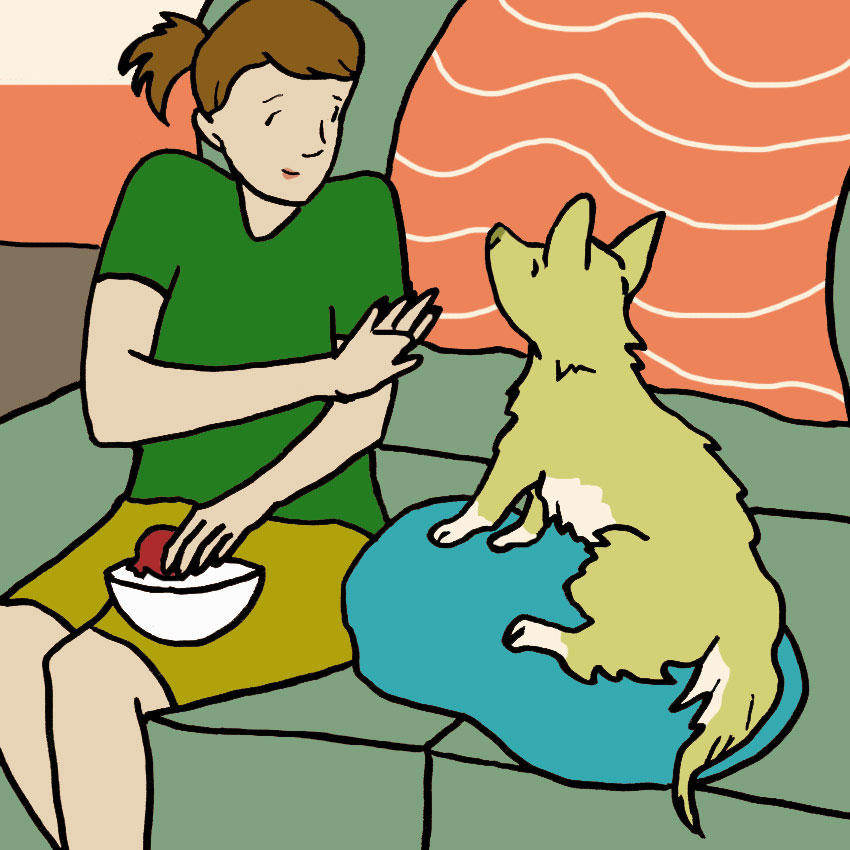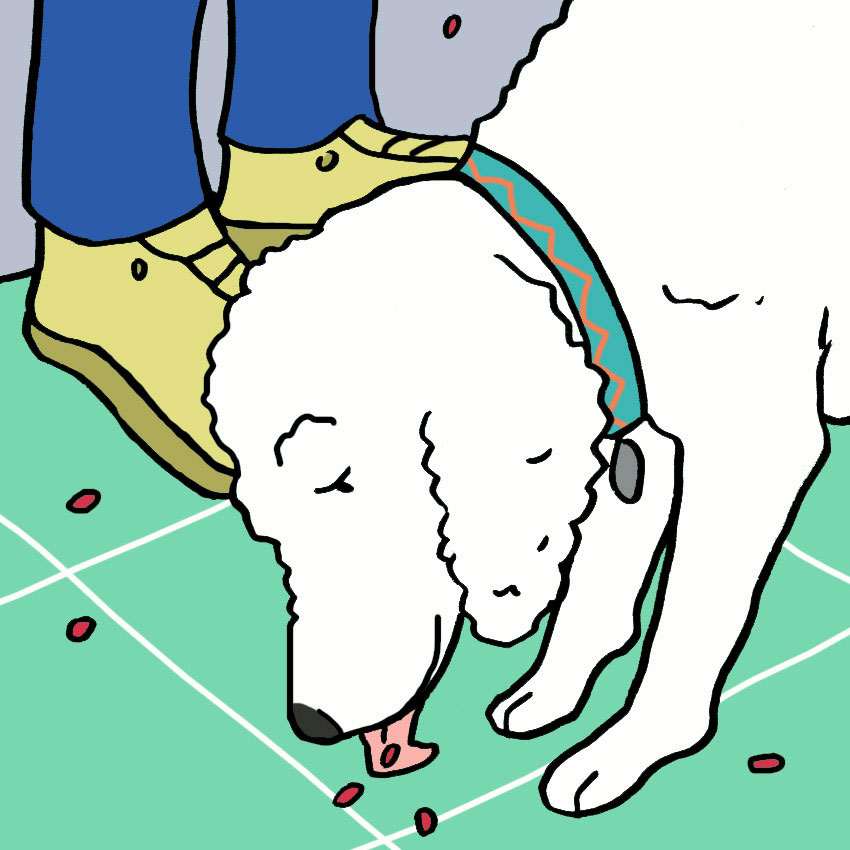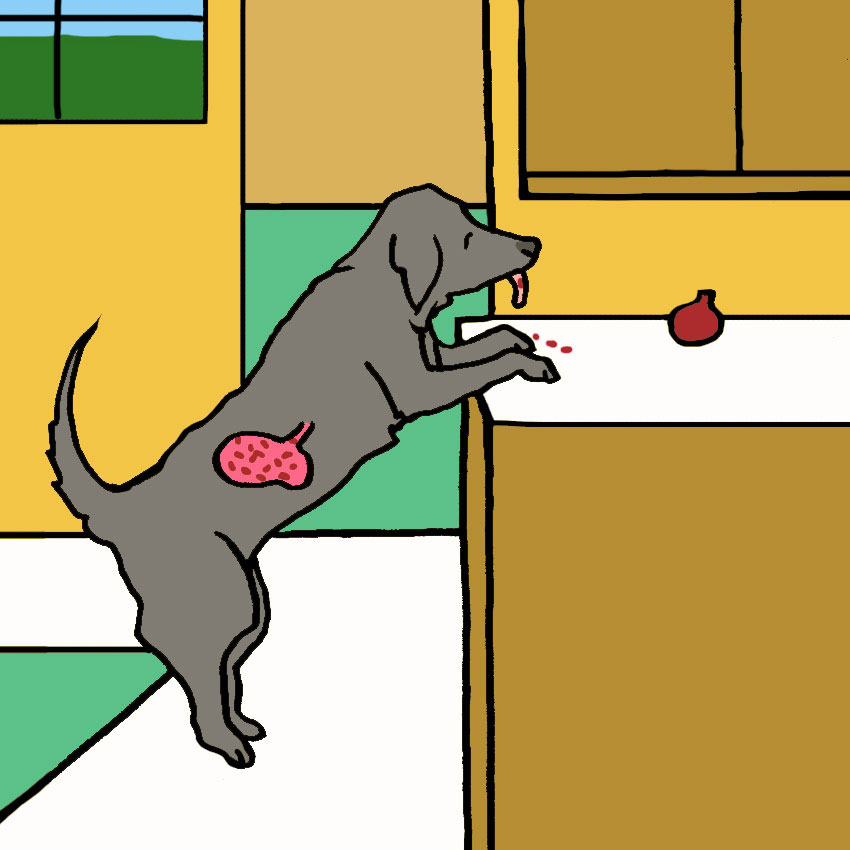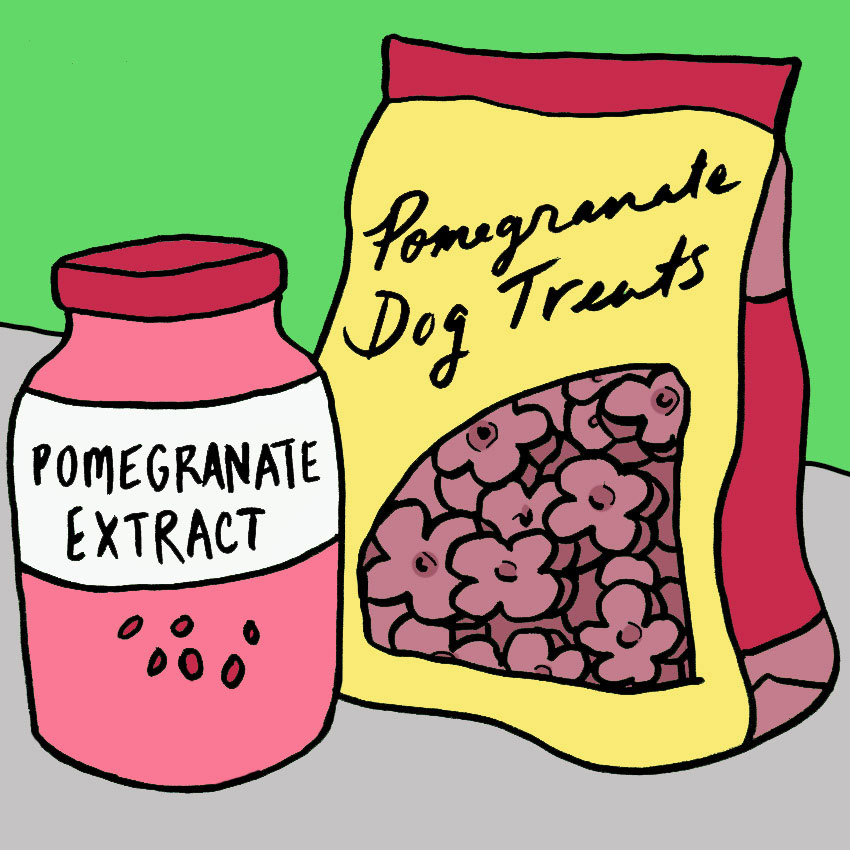Pomegranates have become more and more popular in recent years, and are now considered superfoods for humans. This juicy, seed-filled fruit dates back to biblical times. Many people consider it to be the forbidden fruit that Adam ate. Pomegranates are full of healthy antioxidants, so not only are are they deliciously tart — they're also good for you. Though they can be difficult to crack open and eat, they offer many amazing benefits.
But is pomegranate a forbidden fruit for your canine friend? What happens when dogs eat pomegranate? Can pomegranate be as healthy for dogs as it is for humans, or is it dangerous and extremely harmful? The debate continues among pet owners, but we're here to set the record straight. In this article, you will find everything you need to know before deciding whether or not to feed pomegranates to your dog.
Can Dogs Eat Pomegranate?

Whether or not pomegranate is good for dogs is an issue that’s hotly debated. You’ll find plenty of people who will tell you how much their dog loves it, and others who would never feed it to them. In situations like this, it’s helpful to ask yourself why you even want to feed pomegranate to your furry friend.
Is it your favorite fruit and you’re dying to share it? We understand how tempting it is to share your favorite things with your pet; it helps you bond and identify with him!
Are you hoping to extend your dog's life by adding antioxidants to her diet? That’s certainly reasonable, but there are better ways to do it.
Here, we’ll take you through the pros and cons and try to answer this polarizing question.
Are Pomegranates Good For Dogs?

There’s no denying that the pomegranate is one healthy fruit! It’s got more antioxidants than just about any type of berry. For years, scientists have been touting its anti-aging abilities for humans.
These healthy antioxidants may have some benefits for dogs, but they're very minor, according to Can I Give My Dog. And due to the high likelihood that this fruit will cause stomach upset for your pooch, we simply can’t recommend it.
Why Pomegranates Can Be Bad For Dogs

If your pup got into a pomegranate, there’s no need to panic. They’re not proven to be poisonous, according to Smart Dog Owners.
He will likely just experience a brief episode of tummy troubles, and may vomit. Dogs aren’t meant to eat a fruit-based diet, and they aren’t able to process seeds very effectively either, making pomegranate in its fruit form a double whammy to their digestive system.
Cons Of Feeding Pure Pomegranate To Dogs

As much as we want our canine friends to be just like us, the fact is, they’re not. Dogs have unique digestive needs, and it turns out that the super punch of antioxidants in pomegranates doesn’t make the best match for your pup’s tummy. According to Can I Give My Dog: “Pomegranate is loaded with anthocyanins and ellagic acid as well as tannins. Your dog may not be able to consume these powerful antioxidants in concentrated form.”
Also, keep in mind that pomegranates are full of seeds that contain the sweet yet tart juice. Of course, we know to chew the seeds to release the juice, but dogs are such chowhounds that they would likely just swallow them whole.
The tough outer part, called the aril, can be difficult for dogs to digest, which is another factor that can lead to digestive issues.
Which Parts Of The Pomegranate Can Dogs Eat?

The only part of a pomegranate that Can I Give My Dog says dogs can consume in small amounts is the juice. As we’ve discussed, the other parts may not be toxic to your furry friend, but they’re not likely to be helpful either. And why bother giving food that’s not helpful when there are so many other safer and more satisfying alternatives?
How Should You Give Pomegranate To Your Dog?

Now that we know dogs tend to have trouble eating pomegranate in fruit form, we wanted to provide you with some other ways to get pomegranate into your pooch’s diet. Using these methods, your furry friend can get her antioxidant boost without the digestive trouble — it’s a win-win! However, remember to always consult your vet before adding anything new to your pet’s diet.
1. Pomegranate extract – Recent studies by the Mercola team have shown that pomegranate extract is effective in reducing heart disease in your dog. And since heart disease is one of the most common causes of canine death, this is great news! According to Healthy Pets, pomegranate extract could be effective as part of a “multidimensional dietary strategy to reduce the onset and progression of oxidative stress-induced canine disease.”
With your vet’s permission, try adding a teaspoon of pomegranate extract to your dog’s dry food for an antioxidant boost.
2. Pomegranate dog treats – Another way to add pomegranate to your dog’s diet, particularly if she loves the taste of the sweet, juicy fruit, is to give her high-quality treats that contain pomegranate.
What are your thoughts? If you’re planning on trying some of the dog-friendly pomegranate choices in this article, please SHARE with your dog-loving friends!




